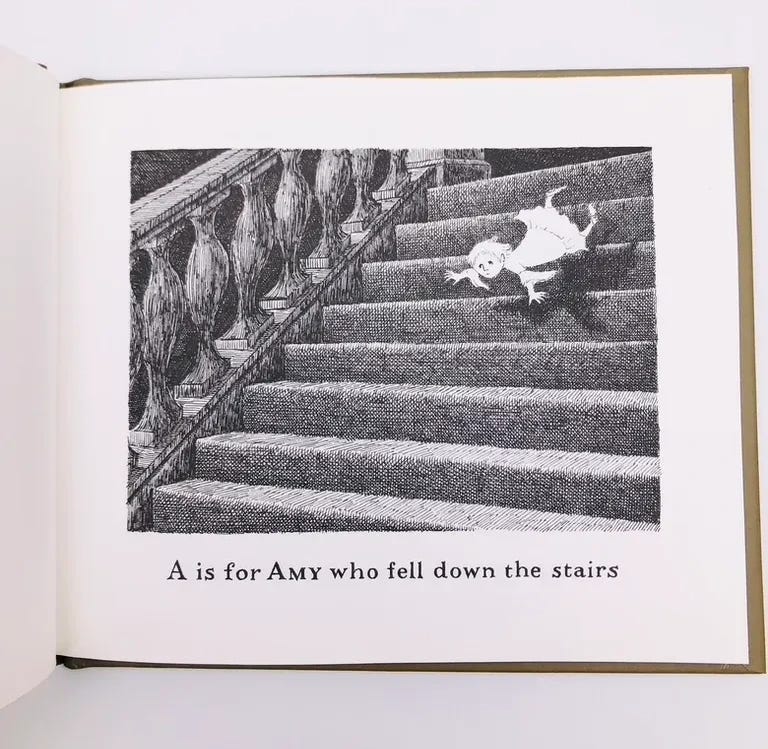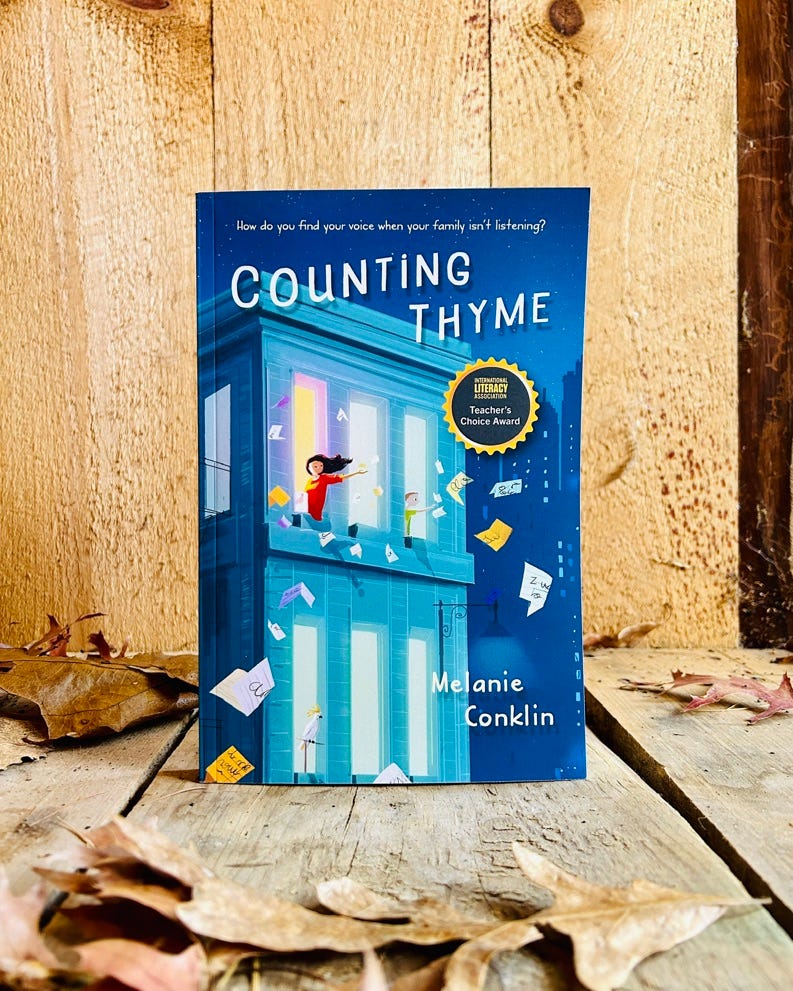I’m a huge fan of Edward Gorey’s work, particularly The Gashleycrumb Tinies, which is a hilariously dark alphabet book in which each letter is represented by a child who meets a horrible (and often ironic) fate. I’ve always had a morbid sense of humor, so this petite title struck a chord with me, as do Gorey’s gorgeous pen and ink drawings. He has a way of combining dark and scary things with humor and humanity, an essential skill for any artist. Our dark sides offer a wealth of material for our art—we just have to be willing to face them.
This installment of Mel’s Notebook is emailed to paid subscribers every Thursday at 9AM EST. If you would also like to receive it by email, become a paid subscriber and earn access to my full archives along with my undying gratitude!
I’ve written about a lot of dark subjects over the years. As a children’s author, this is delicate work, but I think it’s also very necessary. I am not the only morbid child out there. We are many, and we need material that stands up to the very big questions and fears we carry. It’s not wrong or bad to think about death, even as a child. Mortality is an ongoing conversation with ourselves that starts quite young. When a goldfish is found floating, or a family member passes, children experience death. They are not immune to it. Neither should we be, as creatives.
I had just trunked my second training wheels novel when the idea for Counting Thyme popped into my head. I was thinking about the horrible things that happen to people (as one does while pushing a stroller over suburban sidewalks), when a dark thought crossed my mind: It must be so hard to be the sibling of a child with a life-threatening illness. Not only would you experience the stress of major medical intervention, but as a sibling you would likely have to set your own needs aside. A lot. When I imagined that scenario, I knew what I might think if I were an eleven-year-old caught in this horrible situation—I might resent my sibling. And I might hate myself for it.
I took those dark thoughts and ran with them. What would it feel like to give up your whole life at eleven years old? Your home? Your friends? Your school? Your grandmother? Your STATE? There are some very obvious dark thoughts that arise when I allow myself to think in this vein. Those bits of darkness are in the book, because real people think terrible things sometimes. Including my character.
“When someone tells you your little brother might die, you’re quick to agree to anything.”
Readers often compliment how REAL my characters feel. I really appreciate that sentiment, because I worked hard to create that depth of character. This is how I do it:
Keep reading with a 7-day free trial
Subscribe to Mel's Notebook to keep reading this post and get 7 days of free access to the full post archives.








